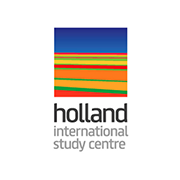


Eleven out of 13 research universities in the Netherlands are ranked in the world's top 200
Dutch universities are world-renowned for high quality teaching and research. Many degrees are taught in English and more than 100,000 international students choose to study in Holland every year.
Eleven out of 13 research universities in the Netherlands are ranked in the world's top 200 according to the Times Higher Education World University Rankings 2021.
Average annual tuition is relatively lower than in the UK, USA and Australia. Students from EEA, Switzerland or Surinam pay €2,060 per year. Other nationalities pay between €6,000 to €15,000 per year. (Source: Study in Holland 2018/19).
There are more than 2,100 English-taught programmes in Holland – more than in any other country in continental Europe.
Universities offer three main education levels:
In addition, universities of technology offer PDEng (Professional Doctorate in Engineering) and universities of applied sciences also offer Associate degrees.
Bachelor’s degrees are usually three or four years and students often go on to study a master’s. Many students also complete an internship as part of their programme.
Education in Holland is interactive and focuses on teamwork and sharing ideas. In class you will be encouraged to express your own opinion, respect other views, and are free to ask questions whenever you like.
Degrees include a mix of lectures, seminars, tutorials, group work and even projects with local employers. Seminar groups are small – usually 15 to 30 students – so you can get support from your tutor and develop key soft skills such as communication and presentation skills.
Many courses include an element of practical experience. Depending on your course, this may involve work in a laboratory, studio, or computer lab. Most universities have strong partnerships with businesses, so there are good opportunities to gain practical work experience.
Degree credits
Dutch universities use the European Credit Transfer System (ECTS) to offer an easy comparison of workload between degrees across Europe.
You will earn credits throughout your degree. One credit represents about 25-30 working hours, and each year of study is worth 60 credits.
Binding study advice is unique to the Dutch university system. This is the number of credits you need to obtain in your first year of your bachelor's degree in order to continue to the next year of your course.
The number of credits required to pass the first year varies by university.
You will be introduced to this education style at the International Study Centre so you know exactly what to expect when you start university.
There are two types of institutions in Holland: research universities and universities of applied sciences. The type of university you choose depends on whether you want to prepare for a specific profession or you want a broader, theory-based degree.
World class universities
Holland is home to world-ranking universities offering a wide range of degrees taught in English. High quality teaching and interactive classes are all part of Dutch education
Study in English
Degrees are taught in English and you can enjoy living and studying in the heart of Europe. Holland International Study Centre pathway programmes lead to universities across the country.
Career opportunities
Holland offers value that lasts a lifetime with affordable fees and the opportunity for international graduates to stay and work in Holland after their degree.
| Av Cost of Tuition/Year | EUR€ 11,900 |
| Cost of living/Year | EUR€19,000 |
| Application fee | CAD$0 |
| Estimated Total/Year | EUR€28,346 |
More courses: click here